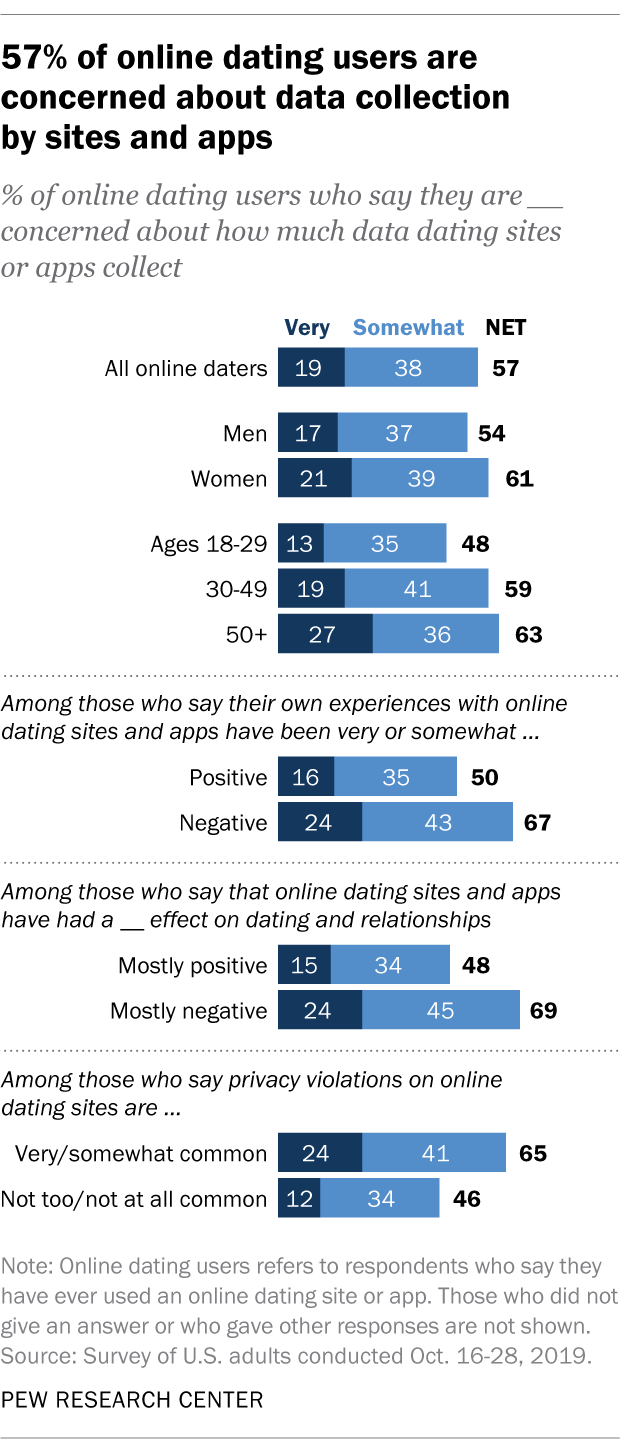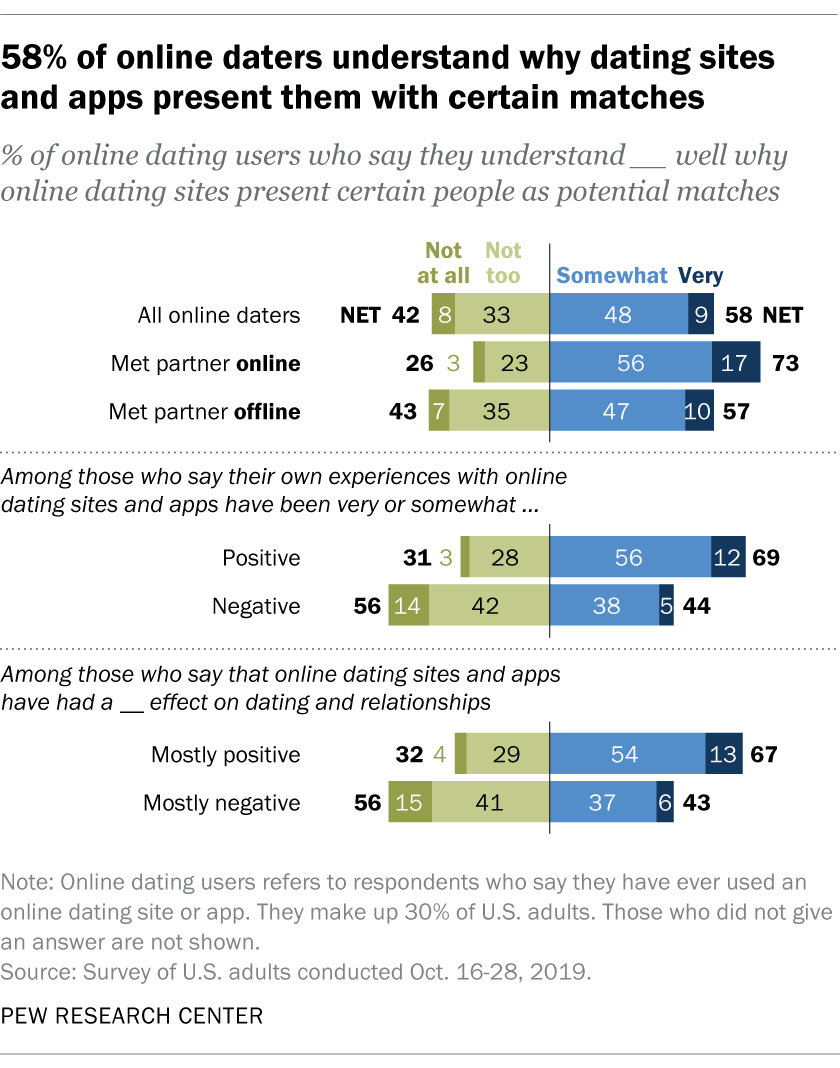
Americans’ anxieties about privacy extend to the realm of digital romance. Some 30% of U.S. adults say they have ever used a dating app or site, and among them, a majority (57%) report being either very or somewhat concerned about how much data such services collect about them.
Older online daters tend to be more worried about this type of data collection than their younger counterparts. About half (48%) of online dating users ages 18 to 29 say they are very or somewhat concerned about data collection, while larger majorities of older users express concern. Online dating users 50 and older are especially likely to be “very” concerned about data collection. There are also modest differences by gender among online daters, with women more concerned than men.
Personal experiences with and beliefs about online dating also tie in with people’s concerns about data collection. Groups who are more concerned about data collection include those who have had negative experiences with online dating, those who believe online dating has had a mostly negative impact on dating and relationships, and those who believe privacy violations are very or somewhat common on dating sites or apps.
How we did this
Pew Research Center has studied the phenomenon of online dating in the U.S. for years. This post sought to explore whether online dating raised the same privacy concerns among users that have been expressed about other platforms and apps.
The findings are based on a survey conducted Oct. 16 to 28, 2019, among 4,860 U.S. adults. This includes those who took part as members of Pew Research Center’s American Trends Panel (ATP), an online survey panel that is recruited through national, random sampling of residential addresses, as well as respondents from the Ipsos KnowledgePanel who indicated that they identify as lesbian, gay or bisexual. The Ipsos panel is an online survey panel that is recruited through national, random sampling. The 2015 data was collected in a telephone survey of 2,001 U.S. adults conducted June 10 to July 12, 2015 (for more, see the 2015 survey’s methodology).
Recruiting ATP panelists by phone or mail ensures that nearly all U.S. adults have a chance of selection. This gives us confidence that any sample can represent the whole U.S. adult population (see our Methods 101 explainer on random sampling). To further ensure that each ATP survey reflects a balanced cross-section of the nation, the data are weighted to match the U.S. adult population by gender, race, ethnicity, partisan affiliation, education and other categories.
Here are the questions used for this report, along with responses, and its methodology.
These findings from a Pew Research Center survey in October 2019 emerge amid broad public concerns about privacy. Dating sites and apps are part of this landscape because they collect personal information about users from their profiles, which cover such things as their sexual orientation and preferences, occupations, hobbies and other interests. Moreover, Norwegian researchers reported earlier this year that some popular dating services were sharing personal data with other firms, including users’ answers to some sensitive questions.
In general, online dating services use data to improve customer experience, namely to present users with better matches. To get a sense of how people rate their knowledge of the digital matchmaking process, the Center asked online dating users how well they feel they understand why online dating services present certain people as potential matches. The majority of online dating users (58%) report they understand the process either very or somewhat well.

Individuals’ understanding of the digital matchmaking process is tied to their experiences with and attitudes about online dating. Users who have had better experiences with online dating are more likely to say they understand the algorithms, as are those who hold rosier views about online dating’s impact on dating and relationships. Demographics like gender and age are not strongly tied to knowledge of the digital matchmaking process.
Among online daters who characterize their previous experiences with dating sites and apps as very or somewhat positive, nearly seven-in-ten (69%) report understanding the process very or somewhat well, compared with 44% of those who have had very or somewhat negative experiences with online dating. A similar pattern exists for those who have met their current partners through online dating.
Likewise, among users who believe online dating has had a mostly positive impact on dating and relationships, about two-thirds (67%) report understanding the process very or somewhat well, compared with 43% of those who believe online dating has had a mostly negative impact on dating and relationships.
Note: Here are the questions used for this report, along with responses, and its methodology.
